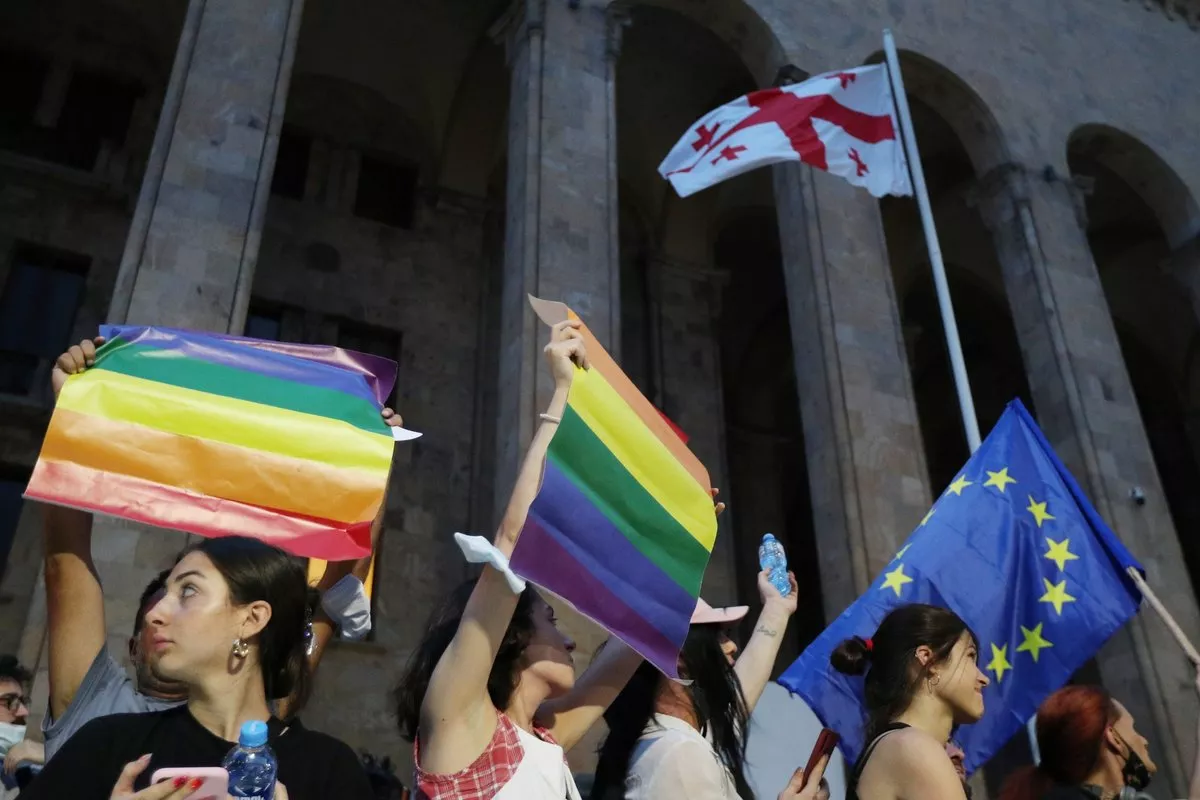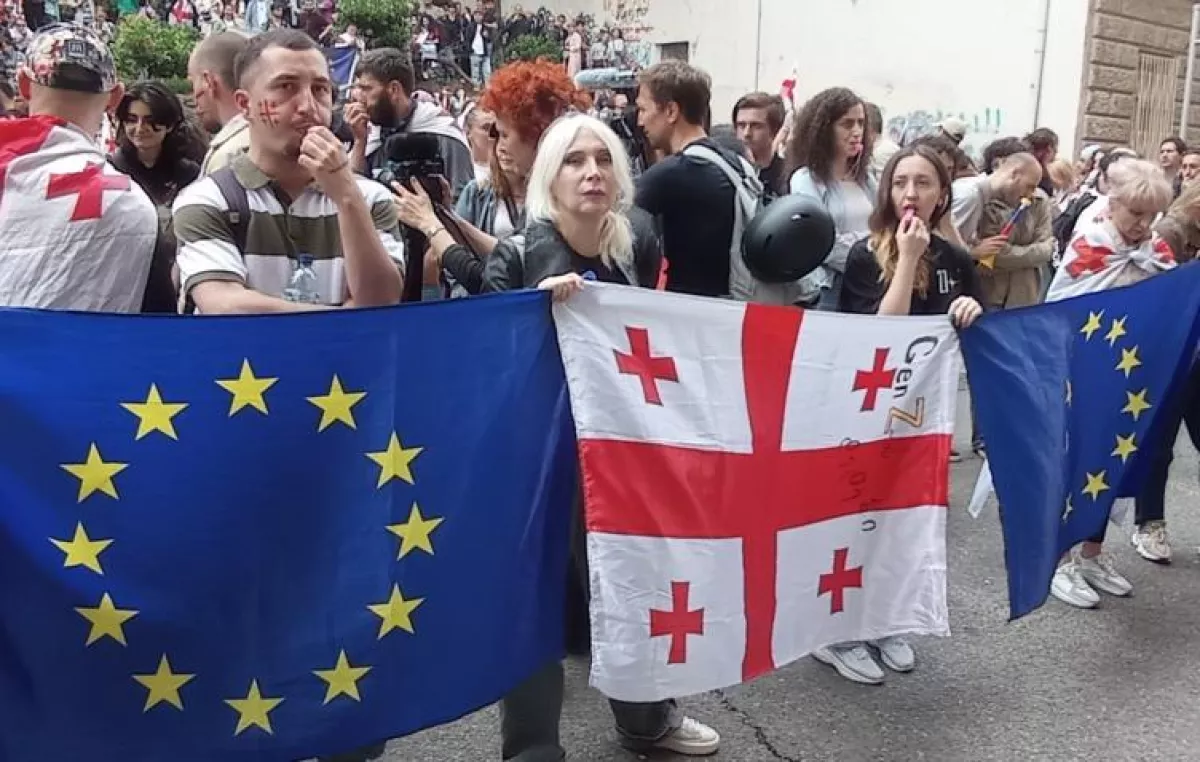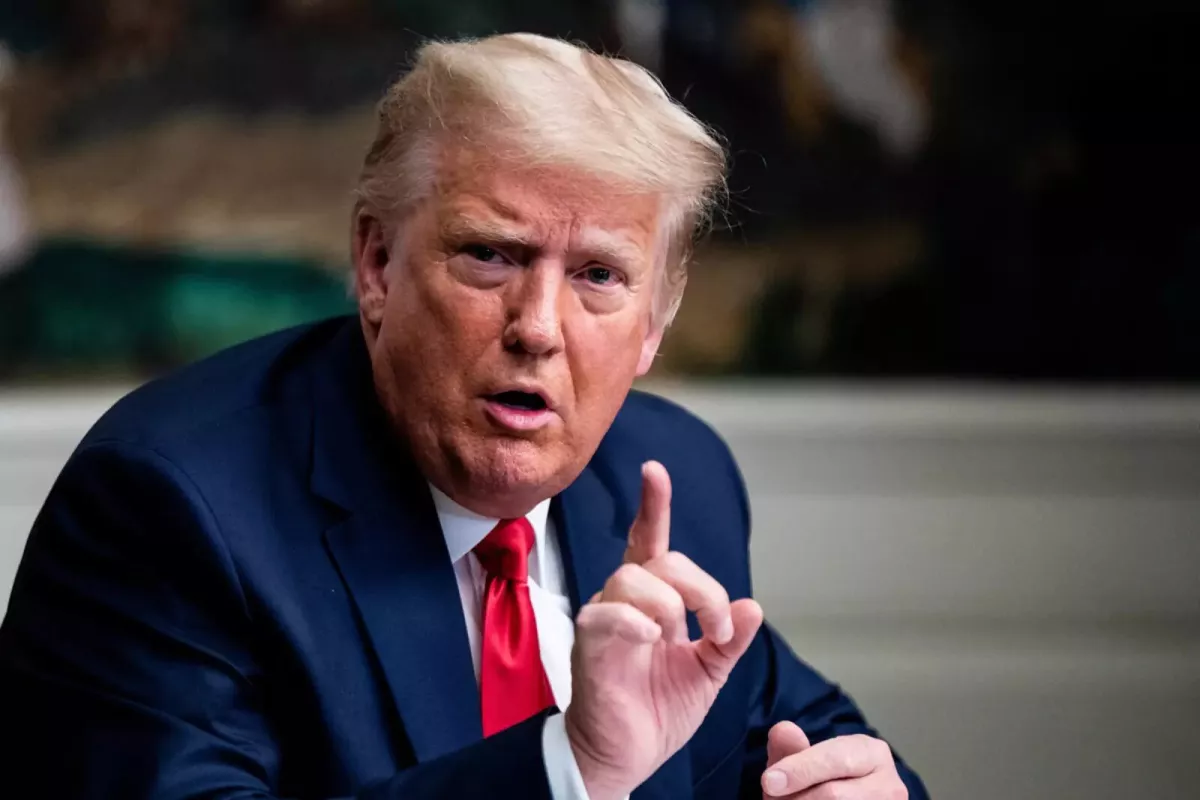Trump’s impact: Decimating the “revolution” dream in Georgia Disrupting Armenia’s plans
The inauguration of U.S. President Donald Trump, along with his first executive orders and initial statements, had an immediate impact on Georgia's political landscape. The once-prominent Georgian "Maidan" and the protests led by the "pro-European" opposition quickly faded from the public eye, as if they had never occurred. Talks of potential Western sanctions against the Georgian government also abruptly stopped. In a move that seemed to disregard Georgia, Trump’s new executive orders effectively put an end to the momentum of the country’s pro-Western "revolution."
First and foremost, Donald Trump signed an executive order suspending all foreign aid programs for 90 days until they could be reviewed. The goal of this temporary suspension is to determine whether these programs align with the objectives of the new U.S. administration’s policy. The document states that the "foreign aid industry and bureaucracy are not aligned with American interests and in many cases antithetical to American values." It points out that the previous administration's foreign aid contributed to destabilising "world peace by promoting ideas in foreign countries that are directly inverse to harmonious and stable relations internal to and among countries." This is particularly relevant to Georgian pro-Western NGOs, which, until recently, did everything possible to stoke hostility between Georgia and Russia, sow division within Georgian society, and impose an LGBT agenda that was completely foreign to the local population.

Thus, all Georgian pro-Western NGOs, all "foreign agents," instantly found themselves without a source of funding. There is no longer much sense for these NGOs to protest against the "Foreign Influence Transparency" law or the "Foreign Agents" law. Foreign funding for the Georgian pro-Western opposition through NGOs has simply vanished. They now face a meticulous review of how the funding was spent—certainly raising questions for their U.S. "handlers" regarding where and how their money was used.
The cessation of funding from the U.S. almost automatically leads to the suspension or termination of funding from other Western sources, including European ones. Tens of thousands of employees of Georgian pro-Western NGOs must now think about how to make a living, rather than how to "utilize" external funding allocated for "Maidans" and "revolutions."

With their "transgender issues" but without money or support from the U.S., the pro-Western NGOs that promoted the LGBT agenda in Georgia now find themselves in a difficult position. Moreover, Donald Trump signed an executive order recognizing only two immutable genders in the U.S.—female and male. Trump also banned the display of LGBT flags on government buildings and U.S. diplomatic missions around the world. As a result, the new U.S. president's policy aligns perfectly with that of Georgia's ruling party, Georgian Dream, which has banned the promotion of LGBT issues.
In light of Donald Trump's statements about the need to end the war between Russia and Ukraine as soon as possible, the prospect of opening a "second front" of this war in Georgia and the South Caucasus has also become less relevant. The pro-Western opposition had been working on this "second front." The fact that Donald Trump's team managed to organize the cessation of the war in the Gaza Strip even before his inauguration suggests that the war in Ukraine will likely be frozen in the near future as well.
The pro-Western Georgian opposition and Salome Zourabichvili, who made a brief appearance at Donald Trump's inauguration—invited not by Trump himself—are desperately trying to demonstrate their "usefulness" to the new U.S. administration. Their last hope lies in the geopolitical rivalry between the U.S. and China. During a Fireside Chat discussion at the Atlantic Council, she claimed that the declaration of strategic partnership between Georgia and China is "unconstitutional."
However, the U.S.-China contradictions in global logistics might involve the Panama Canal or the Arctic, but there are no objections in the U.S. to the successful development of the Middle Corridor, which benefits from the cooperation between China and Georgia. Furthermore, Salome Zourabichvili’s employment at the "McCain Institute" in the U.S. is unlikely to help her build relationships within the Trump administration—especially after Laura Thornton, the director of global democracy programs at the McCain Institute and former head of the NDI office in Georgia, insulted President Trump by calling him a "rapist and criminal."

For the Georgian authorities, Trump's policies fully align with their positions and values, while for Azerbaijan, they offer new opportunities to become a reliable partner in ensuring Europe's energy security. However, for the authorities of the Republic of Armenia, who were able to sign a Strategic Partnership Charter with the Biden administration in its final days in power, the first steps of Donald Trump as U.S. president do not inspire much enthusiasm. Pro-Western NGOs in Armenia, connected with Nikol Pashinyan's government, are facing a suspension of funding, including from USAID.
Furthermore, the pro-Western Armenian authorities had hoped for a "Maidan" victory in Georgia and the continuation of logistical connections through Georgian territory, including in matters related to the supply of French arms. It is now clear that the "revolution" in Georgia has failed, the country has defended its sovereignty, and it will not become a "satellite" of the regime in Yerevan, which still dreams of military revenge. Armenia urgently needs to negotiate peaceful coexistence with its neighbours and unblock communications to avoid exacerbating its situation of geopolitical and economic isolation.
Vladimir Tskhvediani, Georgia, for Caliber.Az








